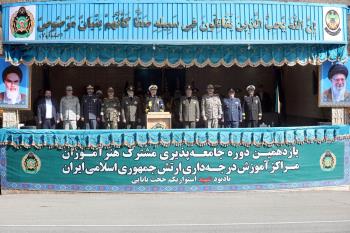Alwaght- While Turkish people are struggling with the aftermath of the devastating earthquake that took lives of nearly 50,000 people and politics is the last issue they care about, the country is going to hold one of its most decisive election of its history in this difficult time; an election that may introduce deep changes to the governance structures. However, the vote was demanded to be held a month later because of the earthquake, President Recep Tayyip Erdogan like always has his own view.
On Friday, Erdogan signed into law a decree ordering arrangements for holding general and presidential elections on May 14, and the Supreme Election Council is obliged to implement the president’s order. The original date was June 18, but Erdogan plans to hold it one month earlier, arguing that the original date coincides with days of the Hajj pilgrimage, nationwide university entrance exam, and start of the summer holidays. However, given his unpredictable political behavior over the past two decades, without any doubt there are political motivations and goals behind the president’s insistence on hold the elections earlier, which can be called his biggest political gamble.
Taking advantage of inter-opposition gaps
Though Erdogan has been the strongman of the Turkish politics over the past two decades unchallenged by any mentionable rival, in recent years conditions have moved in a way that gave room to his rivals to flex their muscles to the advancer of neo-Ottomanism. The competitors have come up with the notion that if they get in the race alone, they would have a slim chance of success to take down Erdogan and, thus, they formed the “six-party table” in February last year, an alliance aimed at uniting their ranks and positions and taking the rule from the Justice and Development Party (AKP) after 20 years.
But the course of developments in recent days indicated that a deep gap has emerged in the opposition alliance, which is a kind of pass to Erdogan to achieve his political goals. Therefore, the president is trying to celebrate his victory with a relative majority vote for the third term before his rivals can rebuild their front against him.
The six-party alliance failed to reach a consensus on a single election challenger to Erdogan, and differences among its members have heightened since last week. Erdogan has always showed he is good at seizing the political opportunities, and this time he is counting on the opposition division, though he is currently the top figure as the poll results suggest despite criticism against his government’s handling of the earthquake crisis and complicated economic conditions.
Over the past two decades, Erdogan has shown that he is a man of big surprises and hard times, and he probably has high hopes for his victory in the elections, which is why he is trying to hold the elections earlier than the scheduled date. Actually, he is not the man of leaping in the dark and if he feels he will be the loser of the election, he will not join the race. Perhaps, he will show new cards in the days leading up to the election to eliminate his rivals and increase his political weight among the voters. The normalization of relations with Syria and Egypt, which has been seriously pursued by government officials in recent days, can be one of these cards to show off a bright foreign policy record.
On the other side, the earthquake aftermaths are snowballing and time is not in Erdogan’s favor because his opposition can take advantage of the disaster as his Achilles heel to tip the scales in their favor.
Although the opposition leaders maneuver over the poor government performance in relief operations in earthquake-hit areas to provoke popular sentiments against Erdogan, the latter has his own cards in this tough crisis, too, that can help checkmate his opponents. The opposition accuse the government of failing to construct strong buildings, but Erdogan responded to his critics to clear himself of the accusation and shrug off the pressures, saying that 98 percent of the destroyed houses were built before 2000, that is, before his administration.
Erdogan has acknowledged the government’s failure to provide aid to earthquake victims, but said rescue efforts have been hampered by winter weather and damaged infrastructure. Yet, he has promised to rebuild tens of thousands of homes by the end of 2023 in consolation to earthquake victims.
The Turkish opposition vowed to restore parliamentary democracy in Turkey and abolish the presidential system Erdogan introduced if the president is removed. It says that this system, which was narrowly approved in the 2017 referendum and after the 2018 elections, turned into a “one-man government” without checks and balances, which opponents do not accept, though the opposition needs to win the majority of seats in the parliament to realize this project and this looks a difficult job.
Erdogan’s worry about worse economic crisis
An important point about not delaying the elections is the shaky economic situation that in recent years impaired him in the face of the rivals. 80-percent inflation of 2020 and the subsequent national currency price slump dealt a heavy blow to the government. Although Erdogan’s administration has managed to ease the inflation effects and currency crisis with new monetary policies, economists suggest that this approach cannot hold up for a long time. This is why Erdogan struggles to pass the critical conditions with victory in the elections so that he can put forward new economic initiatives and patch things up with the help of friendly countries.
Given the experience of the past three years, the Turkish economy is like a ticking bomb that can go off any moment, and at best, Erdogan can handle the inflation and currency crisis and keep the economy alive with artificial respiration until the election date which somehow marks the end of the current state of emergency. However, as the dark sides of economic crisis show face, things would go tough for Erdogan and his chances for reelection will become a dream.
Though Erdogan recently increased the minimum wage of government employees to a significant extent, due to the unstable economic conditions, this pay rise can shrink in value over time and could not increase the purchasing power of the people as expected. Meanwhile, prolonging the election process can foment discontentment which does not appeal to Erdogan.
The already struggling Turkish economy now bears the brunt of earthquake implications. According to initial assessment, the earthquake damage to the Turkish economy is estimated at $80 billion which is considered a burdensome amount for Erdogan’s government. To ease the crisis, Erdogan last year resorted to Persian Gulf Arab monarchies like Qatar and Saudi Arabia for billions of dollars in investments. But the earthquake damage is too huge to be reversed by small amounts.
From another perspective, the more aspects of crisis appear, the heavier negative impacts of it on the people’s life. Therefore, postponing the elections would prove troublesome to Erdogan and any government negligence while the public are watching closely its measures can bring down Erdogan. Thus, the time is not in favor of government and Erdogan and they need to hold the elections before emergence of negative impacts of earthquake.
All eyes are on the upcoming weeks and it remains to see if Erdogan as ever can work magic and turn the tide to his own advantage, or the opposition unite their ranks in the two remaining months and challenge him after two decades of ruling unchallenged.



























